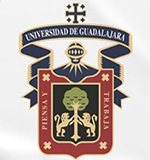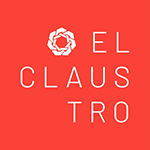Introduction to Claustro de Sor Juana University:
Introduction: Claustro de Sor Juana University is a private university located in the former Monastery of San Jerónimo in the historic center of Mexico City. It features teaching and research in the humanities and social sciences, and provides students with undergraduate and master's education.
Foundation and History:
Foundation: 1979.
History: The monastery was founded in 1585 and was where the famous nun Juana Inés de la Cruz lived for 27 years, where she created many literary works. The monastery was closed in the 19th century and the building was divided for various purposes, including a large ballroom in the mid-20th century. In 1975, a group dedicated to studying Juana asked the government to expropriate the building for protection. Between 1976 and 1982, the government organized experts in anthropology, archaeology, architecture and history to excavate, explore and restore it. In 1979, Claustro de Sor Juana University was established here.
Institutional nature: Private non-profit university.
School strength:
Major settings: It offers multiple undergraduate majors such as art, audio-visual communication, cultural research and promotion, philosophy, gastronomy, humanities, creative writing and literature, psychology, and master's programs such as Mexican colonial culture and food and beverage business administration. It also has certificate courses such as food and beverage business administration and drama production. About 75% - 80% of graduates can find jobs in their fields of study, among which gastronomy is the most successful.
Academic resources: It has rich historical and cultural resources. The monastery building where it is located is itself a national heritage, providing students with a unique learning and research environment. In addition, the school will sponsor or co-organize many cultural and educational activities to help students broaden their horizons and enrich their knowledge.
Educational philosophy: The school's motto is "saber para valorar, valorar para elegir", which means "seek knowledge to discern, discern to choose". It can be seen that the school focuses on cultivating students' knowledge literacy and judgment and selection ability, emphasizing the improvement of students' values and decision-making ability through learning knowledge, so that students can make the right choices in a complex social environment.
Key laboratories and disciplines: There are no key laboratories. From the perspective of professional development, gastronomy, Mexican colonial culture and other disciplines are its more prominent fields.
Department: There is no clear mention of specific department divisions, but the school has different professional courses and departments to carry out teaching and research, such as the Department of Art, the Department of Audiovisual Communication, the Department of Cultural Studies, the Department of Philosophy, the Department of Gastronomy, etc.
Ranking: It does not appear clearly in some common world university rankings, and there is no exact authoritative ranking information in Mexico. However, the school has a certain reputation and influence in the humanities and social sciences in the local area.
Fees: There is no clear tuition information. However, in general, the tuition fees of private universities may be relatively high, and the specific fees may vary depending on factors such as majors and course levels.
Campus environment: The campus is located in the historic center of Mexico City and has a strong historical and cultural atmosphere. The campus buildings include ancient monastery buildings and modern teaching buildings. The interior has been renovated to integrate the architectural style of the colonial period with modern buildings. The school has teaching and cultural facilities such as libraries, classrooms, and exhibition halls, providing students with a good place for learning and cultural experience.
-

National Autonomous University of Mexico
-

Anahuac University of North Mexico
-

Universidad ETAC
-

Universidad Autonoma de Guadalajara
-

Meritorious Autonomous University of Puebla
-

Technological University of Tulancingo
-

Technological University of Huejotzingo
-

Autonomous University of Sinaloa
-

Metropolitan Autonomous University
-

University of Guadalajara
-

Mesoamerican University
-

Istmo University
-

Mariano Galvez University of Guatemala
-

Regional University of Guatemala
-

Galileo University
-

Francisco Marroquín University
-

Rafael Landívar University
-

University of the Valley of Guatemala
-

University of San Carlos of Guatemala
-

Technological Institute of Tlaxcala Plateau
-

Golfo University
-

Technological University of South Sonora
-

Technological University of Huejotzingo
-

Tizimín Institute of Technology
-

Chilpancingo Institute of Technology

